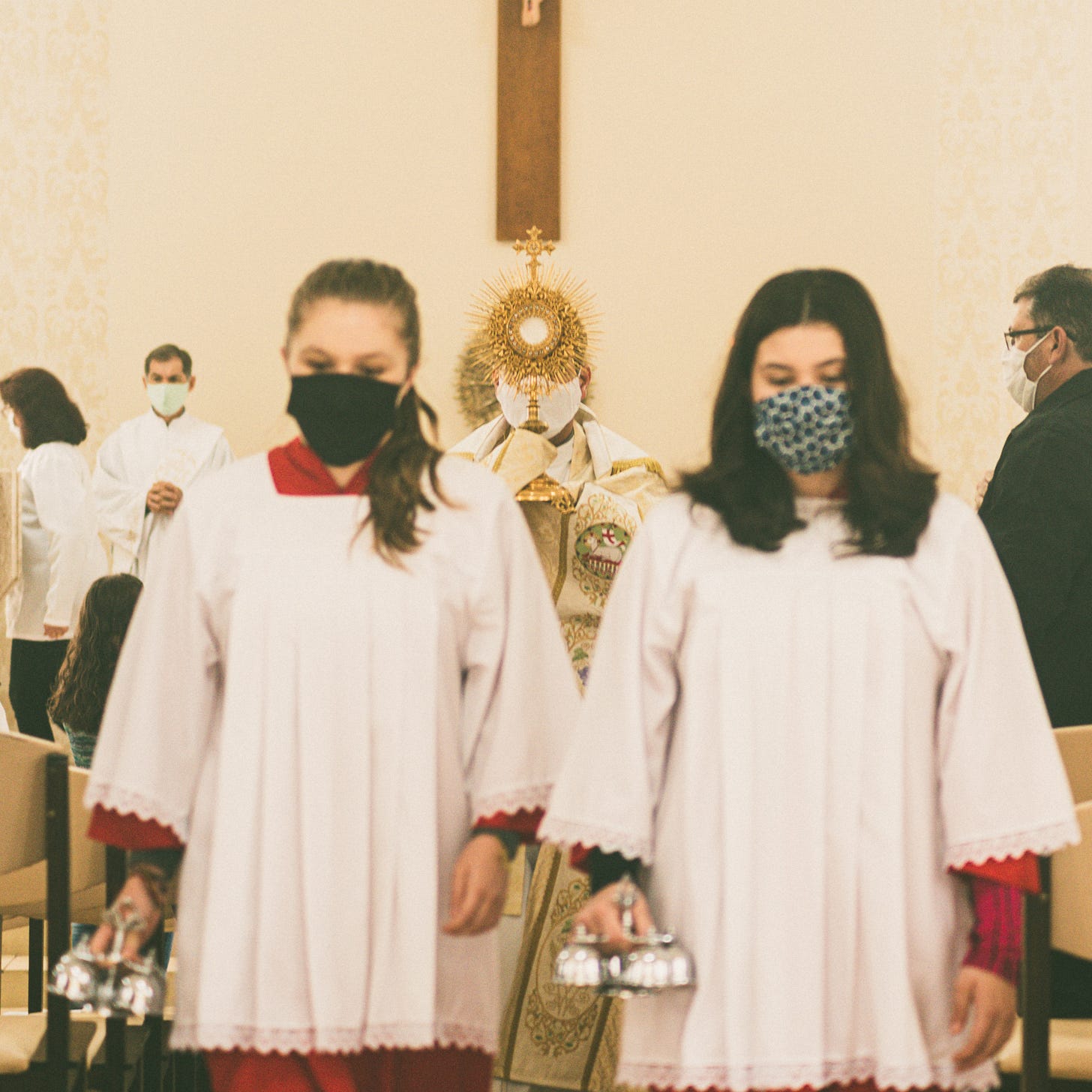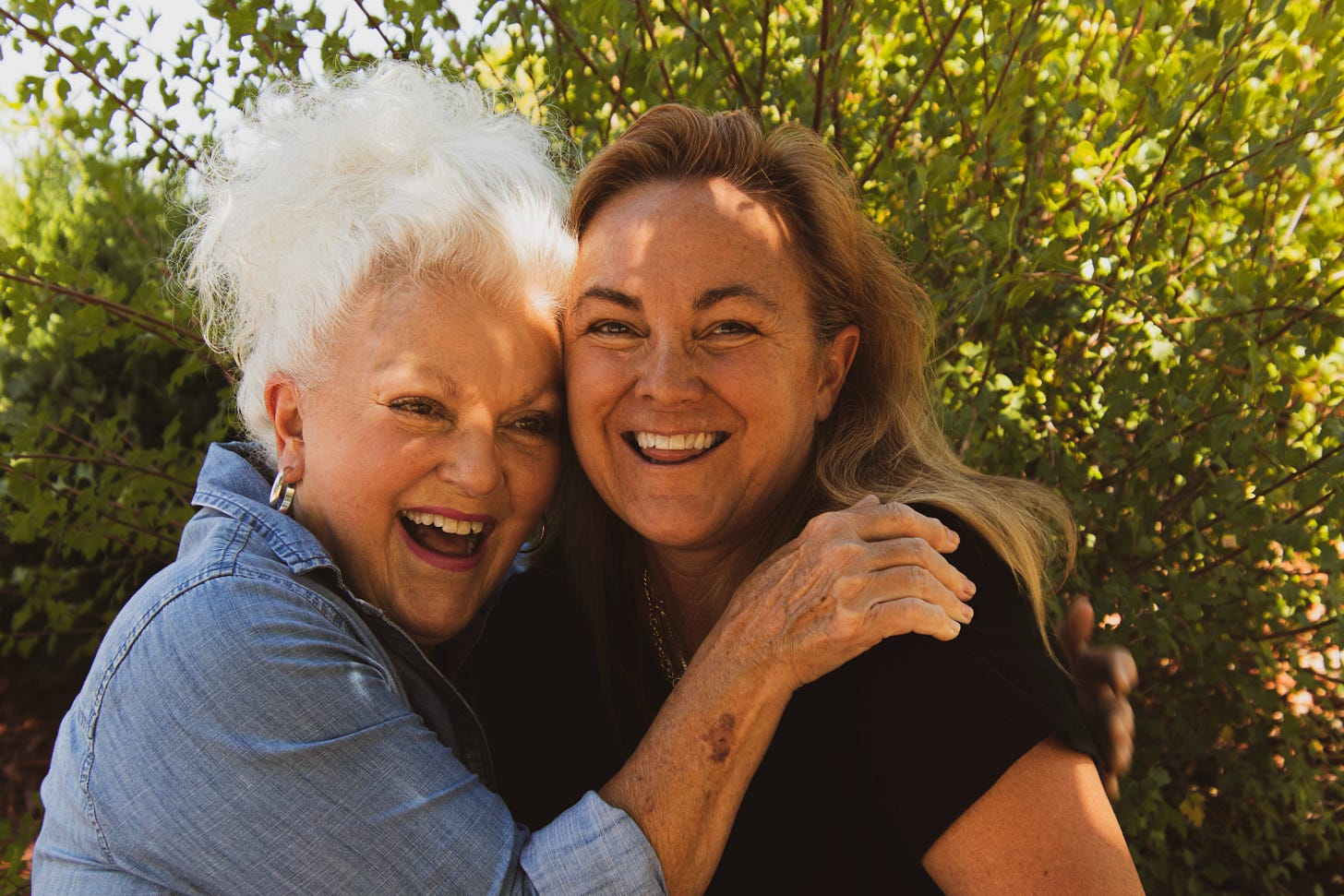About a year into the pandemic, my husband and I received a newsletter from the church we’d started attending when we moved to Florida in June, 2019. We had been there for perhaps three or four months when COVID-19 struck our country in February-March, 2020.
Like many other congregations, the church pivoted to virtual services for a few months. Then, in fits and starts and with lots of precautions in place, the congregation began offering in-person worship services. Attendance remained low.
In order to encourage more people to “come back to church”, one of the pastors penned an article for the church newsletter with the message that we must be people of faith, not fear. One important way we could demonstrate that kind of faith was by in-person attendance. While his missive made allowances for many (like me) who had health reasons for continuing to attend virtually, he wanted to prod those he felt might be getting out of the habit of attending services each week.
I responded to him by noting that if the pandemic has revealed anything about us human beings, it’s that all of us fear something. Some feared having their freedom curtailed by what they viewed as excessive government overreach. Some feared missing out on social gatherings and events. Others (like me) feared getting sick, losing their job, or watching a loved one die of the virus.
I’ve knew several pastors who confessed they were afraid of losing funds, members, or buildings during those long months of lockdown. Other pastors saw splits among their congregation as Covid exacerbated the polarized politics already at play in both church and culture. When I reached out to him, the pastor who penned that article agreed with me that his approach may have miscommunicated what he most wanted to convey to his congregation: that he was afraid of losing the sense of community he cherished at the church.
When God told us not to be afraid, he wasn’t telling us to mask (to coin a phrase) our emotions, nor was he shaming us for feeling fear. Instead, he was telling us that we didn’t have to meet our fear alone. That’s good news, isn’t it?
As the worst of the pandemic ebbed, my husband and I realized we hadn’t really had a chance to check out other churches in our area. For theological reasons that went far deeper than the “faith over fear” newsletter article, and after sharing our questions and concerns with the pastor, we found ourselves once again looking for a new church home. As we prepared for this task, I penned this set of questions we could use to have an honest conversation with a church leader after attending worship services for a couple of months.
I realize now I’m listening for something that’s not included in my list of questions. As I’m hearing sermons, announcements, church programming, and casual conversation as a church visitor, I find myself curious about how the congregation is processing the last 3 years of COVID-19:
Is there a determination to get back to the way things were in 2019 and before, and bypass the lessons God may be offering us as a result of the pandemic?
Is there a recognition that many are carrying trauma from the fear, isolation, illness, loss, and/or financial hardship of those years?
Are leaders prayerfully asking questions about how the changes we’ve experienced during these last three may reshape the ministry of the church and the congregation’s engagement with the world around them?
Those questions are relevant for each of us as individual women who are seeking to grow sage in the second half of our lives, too.
As you may be pondering how the last 3 years have affected you and your relationship with a local church, here are some helpful reads offering a variety of perspectives that can spark further reflection on the topic:
We’d love to hear from you. What has your experience with your local (or virtual) church been? What questions do you have?
Grateful for you, sister Sage,
Michelle Van Loon
Writing Your Next Chapter Workshop Recap
A total of 45 writers in their Wonder Years registered for our “Writing Your Next Chapter “ workshop on Saturday, January 28th. 41 were live to hear presentations about writing in the second half of life from Carole Duff, Afton Rorvik, Dorothy Greco, and Amanda Cleary Eastep. Michelle Van Loon emceed.
The speakers offered a wonderful mix of honesty, inspiration, motivation, and practical guidance. We’ve gotten quite a bit of nice feedback from those who attended, and we’re looking forward to hearing what next steps our participants may choose to take in their respective writing journeys.
We at The Sage Forum desire to offer meaningful learning opportunities to women in the second half of their lives. If you’ve got a topic in mind for a workshop, please reach out. We’re dreaming, too, of a possible in-person regional retreat at some point in the future. Let us know how we might serve you, Sister Sages. Click the button below and share your ideas. We value your input!
What we’re reading, listening to, and watching right now
The Lady’s Handbook for Her Mysterious Illness: A Memoir by Sarah Ramey. As someone who has been battling chronic health issues for more than 20 years, Ramey’s work really resonated with me. She gets the wasted time and wasted money, the dismissive doctors, and the deep discouragement. Ramey does a terrific job connecting the dots regarding the possible contributing factors to illnesses that primarily affect women. The language is quite salty (understandably) but I would recommend this book, especially for anyone out there who has been or who currently is dealing with chronic health issues.. (DG)
The Sea Keeper's Daughter by Lisa Wingate (Book 3 of the Carolina Chronicles) With nuanced layers and foreshadowing, Wingate weaves together complex characters with family mystery and pain, a vivid coastal backdrop, and letters referencing the Federal Writer's Project. Now I want to read the first two books in the series! (AR)
Tom Holland's Dominion: How the Christian Revolution Remade the World Historian Tom Holland demonstrates the enduring legacy of Christianity by showing how Christian precepts came to saturate, indeed, to transform our world from antiquity to modern times. Dominion is both scholarly and fun to read—history set in place and time, populated with fascinating characters, and parsed thematically. Don’t miss the chapter titled “Mission” which opens with Paul in Galatia. (CD)
You know a Hebrew-language Israeli-made series has broken through boundaries and cultures when it is in Netflix’s Top 10 in countries including Lebanon and India. When Season 4 of Fauda (which means '“chaos” in Arabic) released a couple of weeks ago, it did just that. While the intensity of violence and spicy language will not be everyone’s cup of tea (including me!), nonetheless, I am a fan of this gritty, authentic, addictive series that follows the exploits of an elite Israeli anti-terrorist unit, while also offering a realistic look at life among some of those on the other side of the never-ending conflict. (MV)
All Creatures Great and Small (PBS) warms my heart every Sunday evening. I love watching this drama of a small veterinary practice in England in the 1930s. You might think it's all about the animals, but it's actually about the people–the farmers, the vets, and the people in the community. You get the drama of life mixed in with heartfelt love stories and a good dose of laughter. Plus, I'd watch it just for the beautiful scenery! (SF)
City of Tranquil Light by Bo Calwell is a sweeping novel of a missionary couple in China in the early 1900s. This saga takes you through joy and sorrow, success and loss in the midst of a beautiful culture that experiences famine and war, but also community. This inspiring book, based on the author's maternal grandparents, doesn't shy away from Christian themes. (SF)
Our Great National Parks series on Netflix, narrated by Barack Obama. The drone photography in this series allows viewers to see remarkable, up-close and personal views of unusual animals. As I watched and marveled, I worshiped the creative Creator. (And I wanted to go hike in a National Park!) (AR)
John Thompson of the True Tunes podcast has been in the Christian music world for decades, and has done everything from running a store to producing concerts to playing in bands to teaching at the university level. His podcast offers extended interviews with thoughtful artists of faith like Bill Mallonee, Chris Williamson, and Bruce Cockburn whose music is rarely, if ever, found on Christian pop radio. (MV)
Coming in next month’s issue: The BLESSINGS of getting older!
Photo credits: Dorothy Greco, plus Mateus Campos Felipe, Christin Hume, and LOGAN WEAVER on Unsplash








Excellent article, Michelle. Thanks.
Very thoughtful and insightful, Michelle. Thanks for sharing. At some point I may write a public musing on my own journey, but I am still muddling a lot, which I think is a sign of my need to mature in my spiritual growth a bit more.